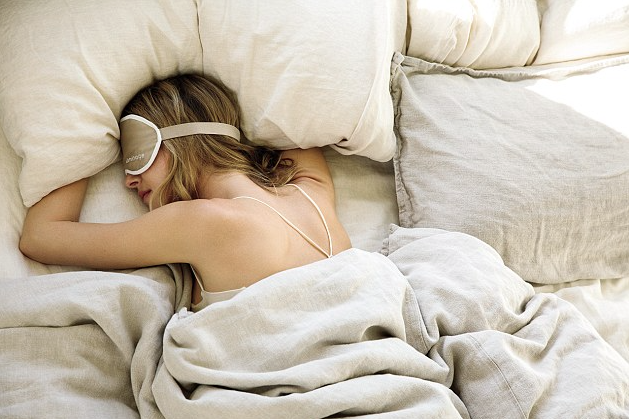There's no doubt you've heard of the concept of clean eating - eating as many whole, or minimally processed, foods at possible. And now, in our desire to live in a 'clean' world, this method has crept into our sleeping habits in the form of 'clean sleeping'.
Gwyneth Paltrow, actress and founder of lifestyle publication goop, coined the phrase in an exclusive article for Daily Mail Online in December.
But you will need to rest your head on a $60 copper pillow and don some $45 heated socks.
Quality sleep is insurmountably important; numerous studies lay bare how important it is for adults to get at least seven hours sleep to keep our immune system strong, our brains alert, and even fend off disease.
A great deal of the body's repair work happens when we sleep. Our muscles repair, our glymphatic system washes away brain toxins, immune support.
This is because human growth hormone (HGH) is released by the brain into the bloodstream during sleep, and its release is part of the repair and restoration function of sleep.
There are five principles that make up clean sleeping:
- Getting at least eight hours of sleep per night, ideally 10
- Getting into bed by 10pm (the sleep between 10pm and 12am is some of the most restorative)
- Eating clean throughout the day and limiting caffeine intake to support the gut and adrenals
- Regular exercise – ideally first thing in the morning or at lunchtime – to reset your body's circadian rhythm
- Making your bedroom a sanctuary by separating it from work, and keep it as dark as possible
Studies have shown that lacking sleep has the power to alter our hormones, triggering issues for both mind and body.
Sleep deprivation can disrupt the metabolism and lead to hormone imbalance, but it can also lead to a weakened immune system, mismanagement of stress and an increased risk of heart disease.
Dr Lefkowitz explained that tiredness is a stressor and stress stimulates the hormone cortisol and insulin, which triggers your body to store fat. Stress also reduces glucagon, the hormone that instructs your body to burn fat.
The experts warned that another consequence of lack of sleep is that the hormone ghrelin, an appetite stimulant hormone, can go into overdrive and that getting less than eight hours of sleep every night can lead you to consume an extra 385 calories per day.
Dr Robert Oexman, of the Sleep Institute, said that people may criticize the idea of being told when and how to sleep.
He said: 'You may say to me, 'Hey Bob, I've slept just six hours today and I'm not dead' and here's I say to that.
'We can tell you what is good for you and your body and it's up to you to follow it. But if you don't, you're at a higher risk for certain diseases.
'Americans in particular today are on so many medications for some many things: high blood pressure, high cholesterol, anxiety, depressing. Getting enough sleep can be a very effective thing to helping get rid of a lot of these things.'
The goop experts say that there are a few tips and tricks to getting yourself some quality shuteye.
1. Consistency
The doctors recommend going to sleep and waking up around the same time as often as possible to get your body into a rhythm. Getting a consistent pattern is better than just making up for it on the weekends.
2. Avoid foods and drinks
Make an effort to avoid caffeine and energy drinks later in the day, and resist the urge to have a midnight snacks because the digestive system can interrupt sleep.
3. Keep your room dark
Don't keeping your phone on your bedside table, the experts say. The light it emits during the night can interrupt the body's production of melatonin, meaning sleep is more likely to be interrupted.
Research has shown we need seven to nine hours of sleep per night.
The experts say there might be many signs you're not getting enough sleep including feeling irritable, anxious, depressed, loss of mental clarity, or a tendency to gain weight.
Dr Oexman added: 'Beauty sleep is very much a real thing. Not only does it change your collagen levels but if you look at a before and after picture of someone who's had little sleep, you can see massive changes in their physical appearance.'
Also read:

No comments:
Post a Comment